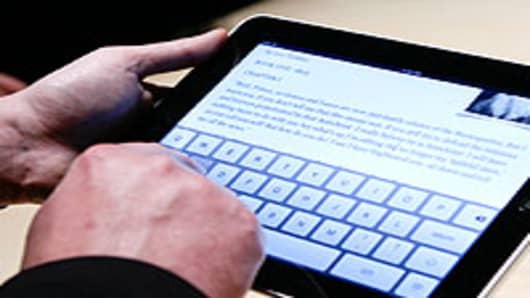While Apple consistently tops lists of the most innovative companies, it's not because the company creates products that are entirely new.
They didn't invent the personal computer, digital music player, the smartphone, or the tablet. But they reinvented them and forced their competitors to rethink their strategies.
"Apple will move if it feels it can enter and capture customers that formerly the incumbents haven't been able to capture very well or monetize," said RBC Capital Markets' Mike Abramsky. "Typically Apple tends to be disruptive because it's products are powerful and also simple."
It's a trend that's been going on for decades. Take the computer mouse for example. Apple didn't invent it but introduced it to the mass market with its first Macintosh in 1984. Today, you'd be hard pressed to find a desktop computer without one.
"They've really shown competitors how you do a product properly, and create and ecosystem around it so you can flourish," said Brian Marshall, Broadpoint AmTech senior analyst.
More recently, Apple entered the smartphone race with iPhone. Today it's the number three smartphone maker with just over 16 percent of the market, according to IDC. Nokia leads with almost 40 percent of the market, followed by Research in Motion at 19.4 percent.
Beyond the numbers, one could argue that the iPhone changed the face of the smartphone industry. "They came out with a lot of innovative features that no one had ever seen before: multi-touch screen, the fact that there were apps. There were soon hundreds of thousands of apps.All other phones were locked down. There weren't too many things you could do with them ," said John Abell, New York Bureau Chief, Wired.com.
The move into smartphones marked a shift in strategy for Apple. On the same day the company unveiled its iPhone, it changed its name from Apple Computers to simply Apple Inc. to reflect its focus on a more mobile consumer market.
This play for the mobile market has disruptive potential stretching beyond smartphones. "That mobile market actually takes pieces of other markets as well," said Abramsky. "It takes pieces of the computing market, consumer electronics and other vertical providers like for example GPS makers, music players."
As Apple continues its foray into the mobile computing market with the introduction of the iPad, it has an even greater opportunity to redefine computing. The iPad is an eReader like Amazon's Kindle or Barnes and Noble's Nook. Also, it's portable computing power makes it a rival for netbook makers like Acer, Hewlett Packard, Dell and Lenovo.
"I think the iPad is kind of a product in and of itself. I don't necessarily believe that its a personal computer, a laptop, or a net book and I don't believe its a communications device," said Marshall, " I believe its somewhat of a redefined media player."
Will the company have similar success with the iPad? Abell believes its too early to say whether the tablet will have the same resonance that other Apple products have had. That said, he said, "Its not a good idea to bet against the house of Jobs."
Molly Mazilu contributed to this story. Watch CNBC's in-depth coverage of Apple all day Tuesday—part of our special week-long series 'American Titans.'




